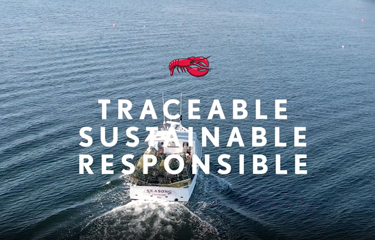A federal judge has denied Red Lobster’s motion to dismiss a class-action fraud lawsuit alleging that the restaurant chain sold Maine lobster and farmed shrimp that is not as sustainable as the company claims.
U.S. District Judge John A. Kronstadt denied the motion to dismiss the class action complaint, originally filed by Dezzi Rae Marshall in the U.S. state of California against Orlando, Florida, U.S.A-based Red Lobster. Marshall – represented by Richman Law and Policy, which has brought similar lawsuits against ALDI, Cooke, and other companies – alleges that the company’s shrimp and lobster are sourced from farms and fisheries that don’t meet high environmental standards.
"We are pleased that the court denied defendants' motion to dismiss in its entirety. We hope that courts will continue to recognize the value consumers place on ensuring that meals 'promised' as sustainable actually fulfill that promise and minimize harm to aquatic animals," Richman Law and Policy Animal Welfare Legal Fellow Brooke Dekolf told SeafoodSource.
In his ruling, Kronstadt said the evidence that the plaintiff offered claiming Red Lobster’s seafood isn’t as sustainable as it claims was sufficient enough for the lawsuit to move forward.
The lawsuit alleges Red Lobster's shrimp comes from farms in Indonesia, Vietnam, India, and China that "engage in environmentally destructive practices, poor reporting of environmental data and standards, and overuse of antibiotics.” It noted Monterey Bay Aquarium’s Seafood Watch advises that customers seeking sustainable seafood should not choose shrimp products from Indonesia, Vietnam, India, and China.
The complaint also criticizes the restaurant chain’s lobster sourcing from the U.S. state of Maine, which it said is sourced from suppliers that use environmentally destructive practices that threaten endangered populations of North American right whales. The Gulf of Maine lobster fishery has also been determined to be violating the Endangered Species Act, which in turn resulted in the Marine Stewardship Council suspending its certification.
That suspension was mentioned in Kronstadt’s denial of Red Lobster’s motion to dismiss, which he pointed out was “following a finding that the fishing gear being employed at the fishery posed legitimate risk to North American right whales.”
Kronstadt said the allegations are sufficient to show that the plaintiff, “a layperson without any alleged expertise in environmental science or sustainability processes,” would be ...
Photo courtesy of Red Lobster








